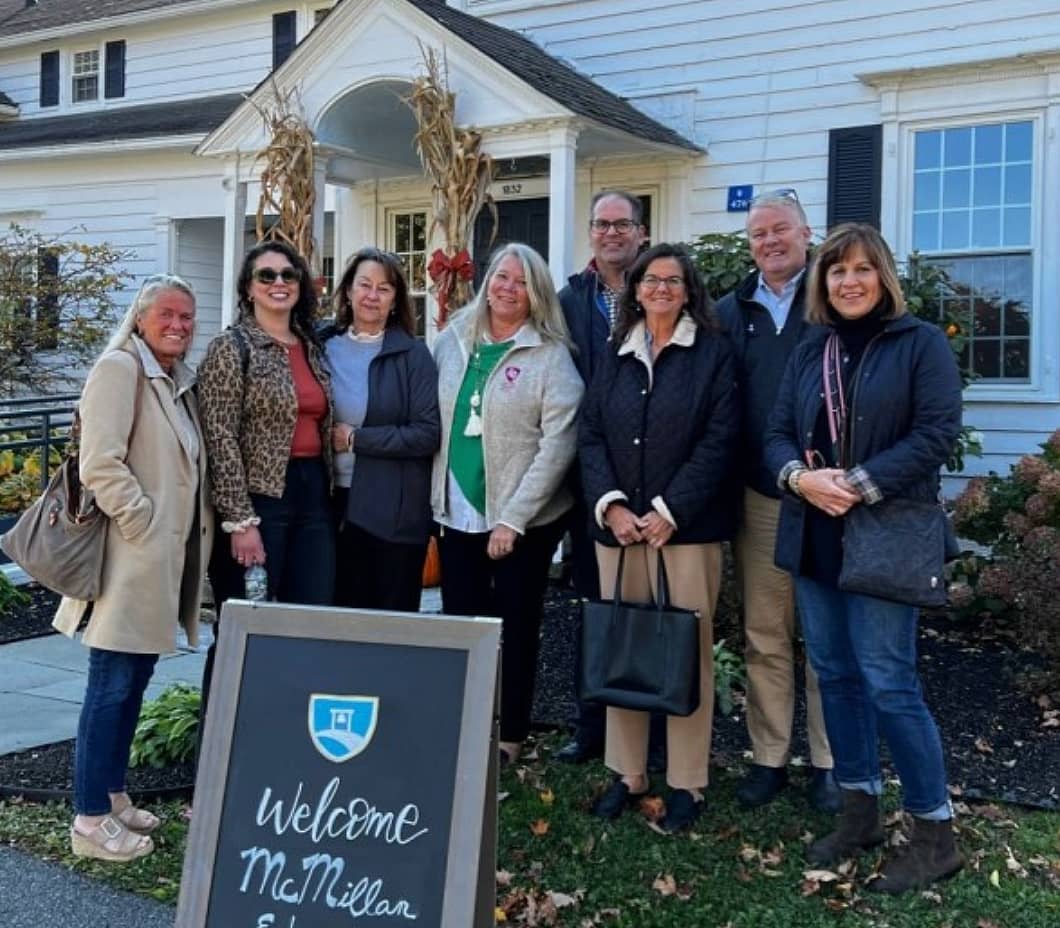Dear Families and Friends of McMillan Education,
As the admissions landscapes have continued to shift dramatically in these uncertain times, we are writing as is our custom to summarize the trends and events in school, college, and special needs planning of last year and forecast the changes and updates in the admissions world in the year to come.
What You Need to Know: 2022 Independent School Trends and 2023 Predictions
As a band of seasoned educators ourselves, we’ve committed our careers to helping students benefit from the caring communities and tailored programming provided by independent schools. In 2022, we grew as a team and adapted our practices to stay current and meet the needs of the wide variety of students we continue to see in our educational consultancy practice.
2022 Highlights at McMillan Education – Our theme song was “On the Road Again!”:
- After too many months seeing school admission folks and families and students on zoom screens, we broke free of our cabin fever, revisiting dozens of campuses and renewing our deep connections with colleagues in admissions offices.
- We even returned to regularly clocking into our brick-and-mortar Boston office, where we welcomed Heads of School and Admissions Directors.
- We enjoyed advising a number of School Heads and Boards on the needs of current students and the complex admission trends accompanying putting a pandemic (mostly) behind us.
- We celebrated our local colleagues, discussed trends, and kicked off the new school year together by hosting an August reception for Boston-area Admissions Directors and Secondary School Placement Directors.
- We shared ideas with colleagues when we attended and presented at admissions conferences across the country.
- We added over two dozen new schools to our industry-leading Owl Boarding School Guide.
2022 Trends – From our work guiding 129 students from over 20 states and 15 countries to 65 different schools this past year, we synthesized these big-picture industry trends:
- Entering the year, schools faced a critical question: Was the COVID-induced rush to independent schools a short-term “renter” reaction, where families would pull their kids from private school post-pandemic and put them back in public school? The answer is most definitely “no.” The demand for private schools continued to stay high, with many more applicants than pre-COVID, though a tick fewer than during the peak of the pandemic. This trend indicates families are “buyers,” intending to keep their children in independent schools long-term. Indeed, one of the common application platforms even crashed on the mid-January deadline weekend, showing the ongoing demand for independent schools and causing lots of angst along the way.
- Students with a broader range of learning and behavioral needs came to us this past year seeking tailored instruction, learning accommodations, and a community that could provide social belonging and extracurricular enrichment paused by the pandemic. Some of these students sought the smaller class size of independent schools as they struggled to make friendships when returning to large public schools after COVID restrictions.
- Parents who were suddenly drawn into the COVID Zoom classrooms in 2020 and 2021 are understandably more hands-on, and at times feeling understandably more anxious regarding their children’s educational futures in this ever-increasing competitive landscape. Consequently, our parents have been more discriminating in their school choices, resulting in many of them choosing, despite the increased admission competition, shorter and more ambitious school lists than in past years.
Now let’s examine what lies ahead for 2023 in the independent school world. First off, know that we typically find good school matches for 30-40 students each fall who come to us in the spring and summer AFTER the January application deadline. We call this late application cycle our “Second Season.”
2023 Predictions and Wish List – Just as independent schools pivoted on a dime three years ago when COVID broke to ensure excellent programming, we are seeing many of our friends in the school world making a commitment to respond to critical needs we are seeing with our current families:
- The mental health issues and learning difficulties exacerbated by the pandemic necessitate a growth in schools providing learning and emotional support. Here’s what I hear from colleagues in our Boston office: “We have plenty of rigorous schools, but want to see more innovative schools serve students in need, in particular young students in the Boston area, for whom there are so few options.”
- Likewise, learning loss and developmental stalling means more kids are looking to enter independent schools at non-traditional entry points like the 11th grade and Post-Graduate years, and even in the middle of the academic year. Just as schools have adapted to more students reclassifying to make up time due to COVID, we predict forward-looking schools will meet the demand for more flexible entry points for admission.
- Parents seeking the specialized instruction of independent schools, especially for children requiring additional learning or emotional support, should turn towards boarding schools, since the Boston-area day school scene has become so
uber-competitive and the broad range of boarding schools – many not that far away – offers more options suitable to students with mild to moderate challenges. - Only a handful of boarding schools require the SSAT – stay up-to-date here on our Owl Boarding School Guide to know which schools currently require the SSAT– while the Boston-area day schools are split fairly evenly on requiring the test or not. We predict the SSAT requirement will creep back into a few more schools as admissions directors see the value of the objective data saving them time in sorting through hundreds of applications and dissuading certain non-qualified candidates from applying.
Concurrently, we envision that those schools that don’t ask for standardized testing will ask for other data points in order to properly assess students, such as neuropsychological exams and/or WISC scores. We also see interviews continuing to take on a great deal of importance to fill the data gap, with many more schools in the Boston area offering in-person interviews once again.



